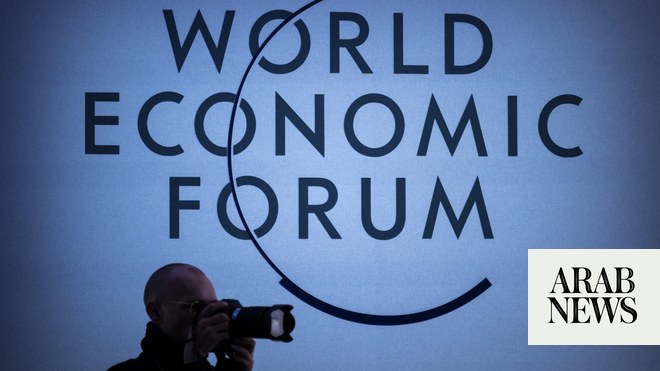Health Red Lights Are Flashing Already For The Middle East, GAINs Executive Director Tells Arab News

DAVOS: Most of the risk factors associated with premature mortality and morbidity, such as obesity, diabetes, and hypertension, are related to what people eat, said Lawrence Haddad, executive director of the Global Alliance for Improved Nutrition.
A diet rich in sugar, salt, or trans fats, combined with portion sizes, is the No. 1 killer and that’s a big problem, he told Arab News during the World Economic Forum in Davos.
“The red lights are flashing already for the Middle East” and it is important for the region to move “towards a healthier diet and a food production system that’s more diverse to protect against shocks,” said Haddad.
The world is currently at the intersection of food systems and nutrition, and people usually think about one or the other, but GAIN aims to connect the two, he said, adding: “Some 3 billion people worldwide cannot afford a healthy diet, which is a massive problem.
“Malnutrition is generated by three things: people not eating enough food; people not eating enough of the right food; and people eating too much of the wrong food.”
Malnutrition tends to be hidden until it is too late. For example, in the US, more people have their legs amputated due to diabetes than from war, he said.
Obesity is a growing concern both in the region and globally. There are multiple reasons for it, such as the affordability of healthier foods, the environment, and marketing.
Haddad said that eating habits and food preferences were hard to change because they are set early on in life, so schools have to become an incubator for good eating habits.
Additionally, he said: “Making healthier foods more affordable is a big issue, but there are some foods that are healthy, and affordable, but not cool.”
Quinoa and kale, for example, are basic, healthy and affordable foods that became popular due to social media and marketing.
Haddad added: “There are ways in which you can reset, reboot, and valorize healthier foods.
“The private sector is brilliant at selling you things you don’t need. We need to get them more involved in making healthy foods desirable.”
Part of GAIN’s work is in connecting the private and public sectors.
Haddad said: “The public sector is very important to set the rules of the game, but the private sector is the engine of our food system … it is the food system, whether it’s producers, retailers, processors, wholesalers, refrigeration, transport, marketing, or finance.”
The nonprofit has offices in eight African and four Asian countries and is currently in talks with the Islamic Development Bank with plans to enter the Middle East.
Haddad said: “We would very much like to work in the Middle East. Honestly, it’s just a question of how we break into that space and begin to develop the relationships with governments, businesses and funders.”
Riyadh Metro Spurs Residential Property Boom: Knight Frank
RIYADH: The opening of the Riyadh Metro has transformed the Saudi capital’s housing market, with villa prices near s... Read more
Saudi POS Transactions Hold Above $3bn In Mid-October
RIYADH: Saudi Arabia’s point-of-sale transactions remained above the $3 billion mark for the third consecutive week, u... Read more
IMF Expects MENA Inflation To Ease In 2025 And 2026
RIYADH: Lower energy costs will help inflation ease to 12.2 percent this year and 10.3 percent in 2026 across the Middle... Read more
Global ESG Sukuk Market Hits Record $6.5bn In Q3, Set For Strong 2026, Says Fitch
RIYADH: The global market for environmental, social and governance sukuk reached a record $6.5 billion in the third quar... Read more
Saudi Ride-hailing Trips Surge 78% In Q3, Topping 39m
RIYADH: Saudi Arabia’s ride-hailing sector witnessed a major surge during the third quarter of 2025, reaching 39.04 mi... Read more
PIFs EA Deal: Whats Happening Behind The Scenes In Esports?
RIYADH: Just weeks after the conclusion of the second edition of the Esports World Cup, the Saudis were ready for the ne... Read more

